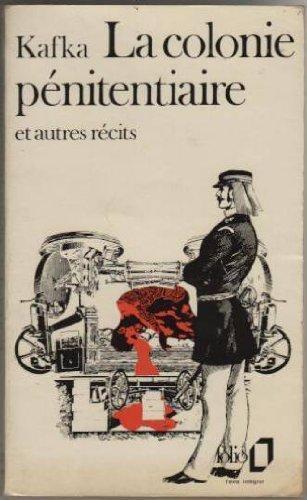Julia_98 reviewed In the Penal Colony by Franz Kafka
Ink, Screws, and Silence: My Uneasy Witness to Kafka’s In the Penal Colony
5 stars
Reading Franz Kafka’s In the Penal Colony was like watching a slow, methodical nightmare unfold in broad daylight—horrifying not because it was loud, but because of its stillness. From the first page, I felt a cold pressure building, an invisible weight pressing down as I entered this remote island where justice is no longer debated, only executed.
The story centers around a bizarre machine used to carry out punishments by inscribing the condemned man’s crime into his flesh. I was disturbed not just by the grotesque detail, but by how calmly it was all described—clinical, almost reverent. The Officer, who worships the old brutal order, explains the machine with the pride of a museum curator. I felt trapped in that moment, caught between fascination and revulsion.
What affected me most was the silence of the Condemned Man, and the passive discomfort of the visiting Traveler. He represents, perhaps, …
Reading Franz Kafka’s In the Penal Colony was like watching a slow, methodical nightmare unfold in broad daylight—horrifying not because it was loud, but because of its stillness. From the first page, I felt a cold pressure building, an invisible weight pressing down as I entered this remote island where justice is no longer debated, only executed.
The story centers around a bizarre machine used to carry out punishments by inscribing the condemned man’s crime into his flesh. I was disturbed not just by the grotesque detail, but by how calmly it was all described—clinical, almost reverent. The Officer, who worships the old brutal order, explains the machine with the pride of a museum curator. I felt trapped in that moment, caught between fascination and revulsion.
What affected me most was the silence of the Condemned Man, and the passive discomfort of the visiting Traveler. He represents, perhaps, us—the reader, the modern outsider, appalled but ultimately unwilling to intervene. I kept asking myself: Would I have spoken up? Or simply walked away?
Kafka’s prose is precise, cold, and deceptively simple. That simplicity made the horror feel more intimate, more plausible. There are no villains, no heroes—just people upholding systems, clinging to rituals, avoiding responsibility.
By the end, when the Officer submits himself to his own device, I didn’t feel relief. Only a deeper unease. The machine breaks. The system collapses. But nothing is truly resolved.
In the Penal Colony didn’t terrify me in the usual way. It made me question the machinery—literal and symbolic—that we all live inside. And it reminded me that some of the darkest truths don’t scream. They hum quietly, and persist.

